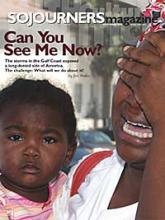What I have learned as a farmer I have learned also as a writer, and vice versa. I have farmed as a writer and written as a farmer. This is an experience that is resistant to any kind of simplification. I will go ahead and call it complexification. When I am called, as to my astonishment I sometimes am, a devotee of “simplicity” (since I live supposedly as a “simple farmer”), I am obliged to reply that I gave up the simple life when I left New York City in 1964 and came here to Kentucky. In New York, I lived as a passive consumer, supplying nearly all my needs by purchase, whereas here I supply many of my needs from this place by my work (and pleasure) and am responsible besides for the care of the place.
My point is that when one passes from any abstract order, whether that of the consumer economy or John Crowe Ransom’s “Statement of Principles” or a brochure from the extension service, to the daily life and work of one’s own farm, one passes from a relative simplicity into a complexity that is irreducible except by disaster and ultimately is incomprehensible. It is the complexity of the life of a place uncompromisingly itself, which is at the same time the life of the world, but also the limitations of one’s knowledge, intelligence, character, and bodily strength. To do this, of course, is to accept the place as an influence.
Read the Full Article

